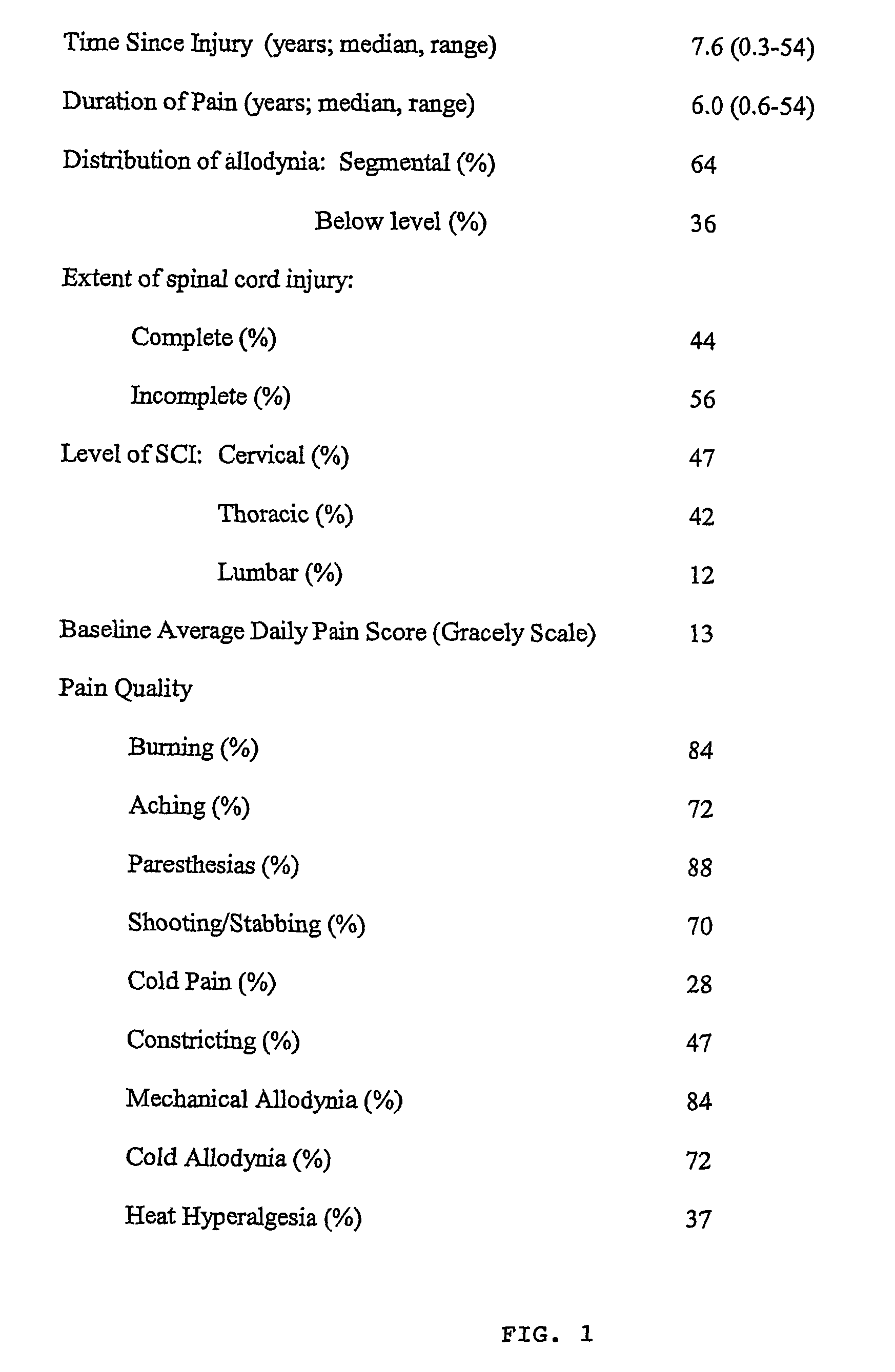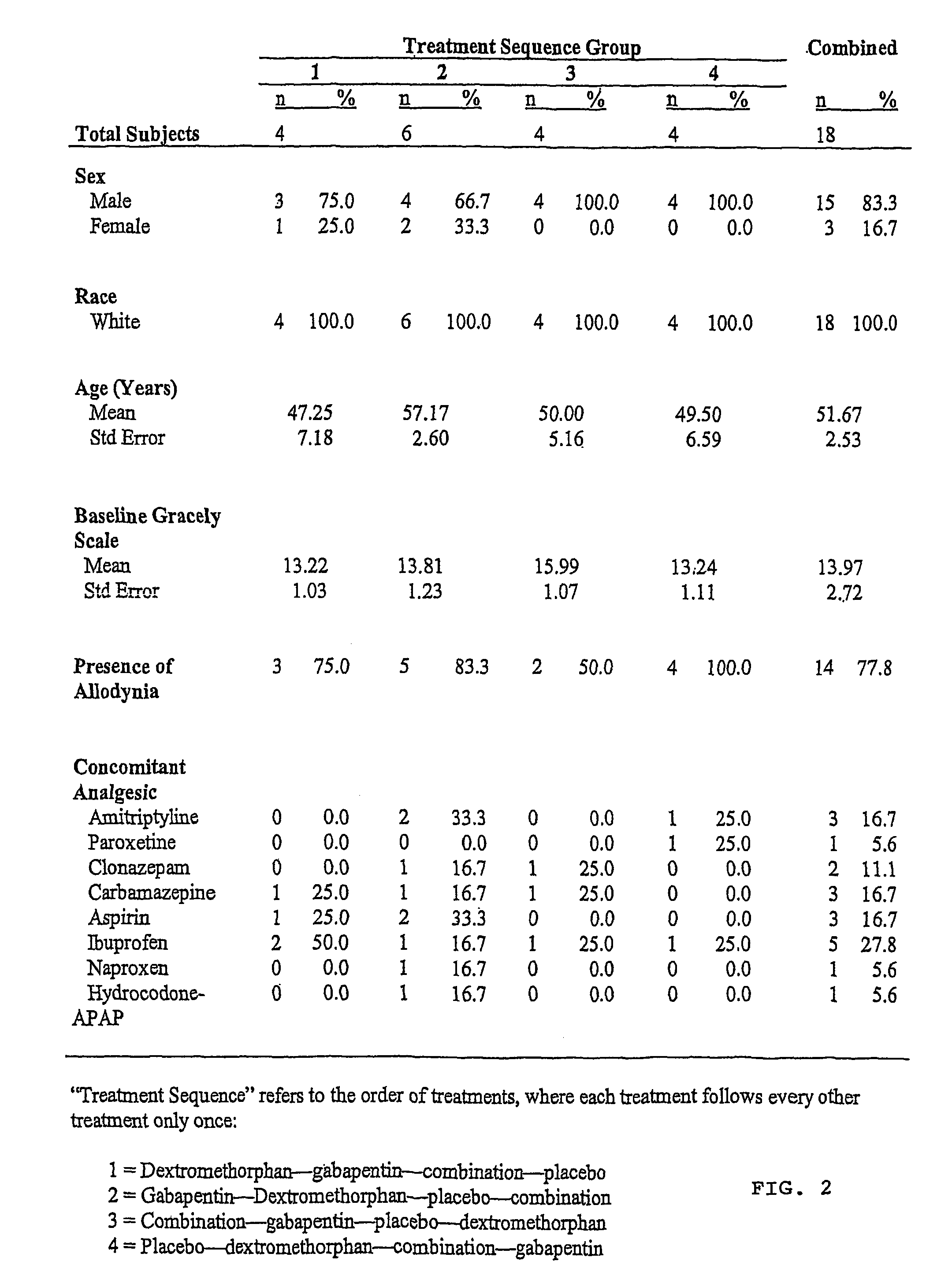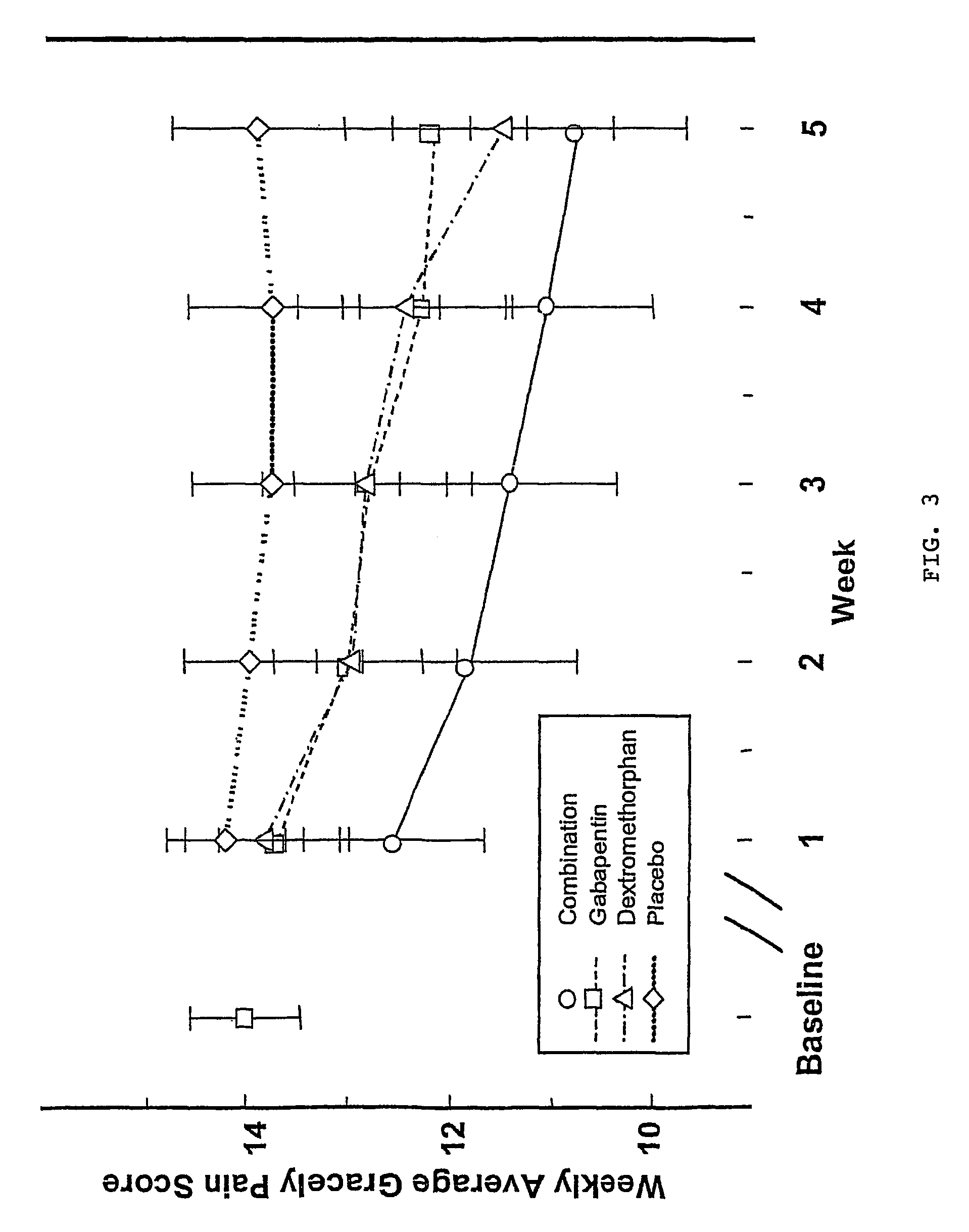Treatment of central neuropathic pain
a central neuropathic pain and pain technology, applied in the field of central neuropathic pain treatment, can solve the problems of ineffective relief of chronic central neuropathic pain, diminishing the attractiveness of analgesics to the human body, and standard analgesics, such as opioids, anticonvulsants and antispasmodics, can not be used in human use, so as to reduce the severity of central neuropathic pain, no
- Summary
- Abstract
- Description
- Claims
- Application Information
AI Technical Summary
Benefits of technology
Problems solved by technology
Method used
Image
Examples
Embodiment Construction
[0018]The features and other details of the invention, either as steps of the invention or as combinations of parts of the invention, will now be more particularly described and pointed out in the claims. It will be understood that the particular embodiments of the invention are shown by way of illustration and not as limitations of the invention. The principle features of this invention can be employed in various embodiments without departing from the scope of the invention.
[0019]The present invention relates to the discovery that treatment with NMDA receptor antagonists decrease central neuropathic pain of humans. In particular, the chronic administration of an NMDA receptor antagonist (e.g., dextromethorphan hydrobromide) has been found to decrease chronic central neuropathic pain in humans following spinal cord injury with no or significantly diminished side effects.
[0020]The NMDA receptor antagonists can be high affinity NMDA receptor antagonists (e.g., ketamine), low affinity ...
PUM
| Property | Measurement | Unit |
|---|---|---|
| temperature | aaaaa | aaaaa |
| affinity | aaaaa | aaaaa |
| time | aaaaa | aaaaa |
Abstract
Description
Claims
Application Information
 Login to View More
Login to View More - R&D
- Intellectual Property
- Life Sciences
- Materials
- Tech Scout
- Unparalleled Data Quality
- Higher Quality Content
- 60% Fewer Hallucinations
Browse by: Latest US Patents, China's latest patents, Technical Efficacy Thesaurus, Application Domain, Technology Topic, Popular Technical Reports.
© 2025 PatSnap. All rights reserved.Legal|Privacy policy|Modern Slavery Act Transparency Statement|Sitemap|About US| Contact US: help@patsnap.com



